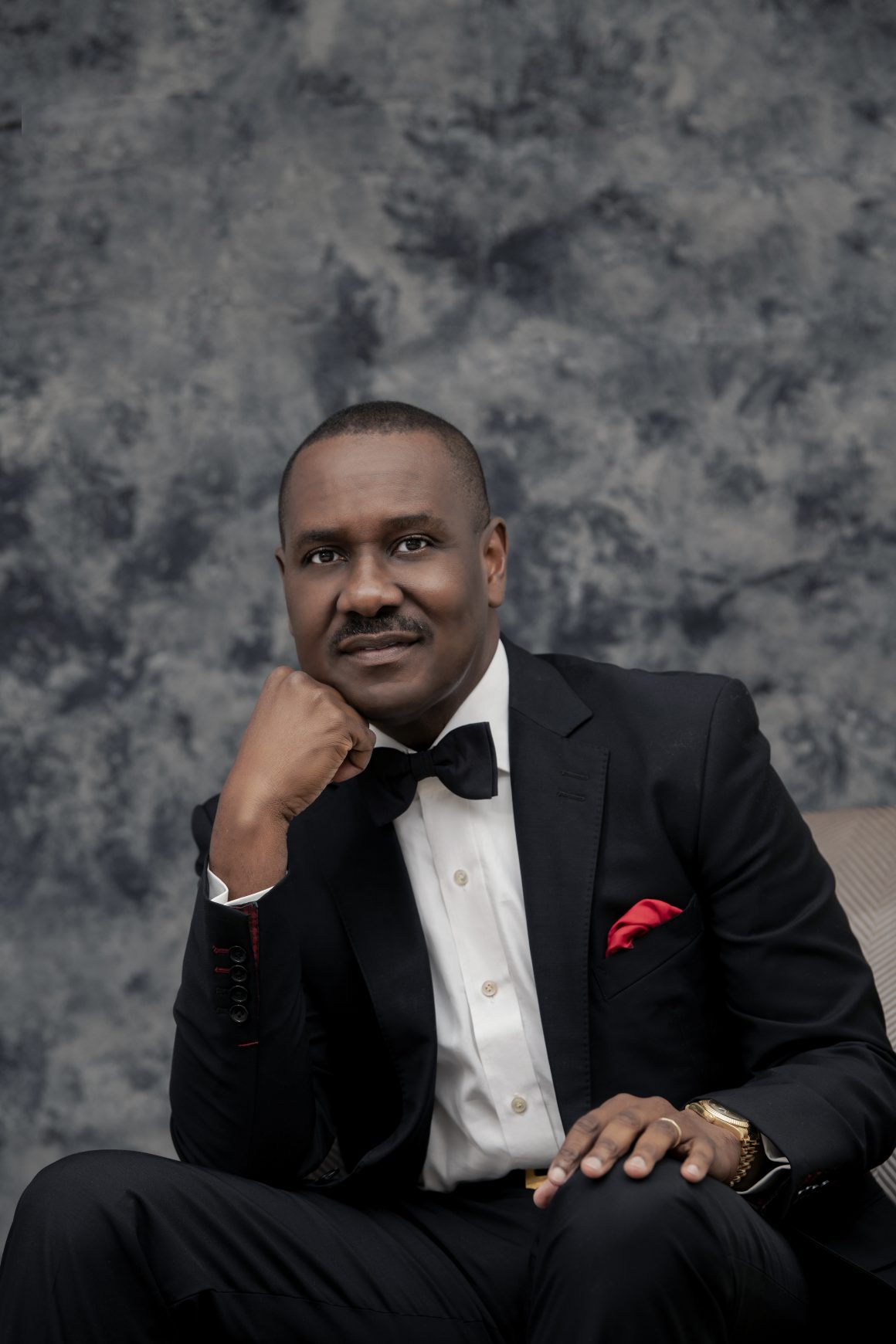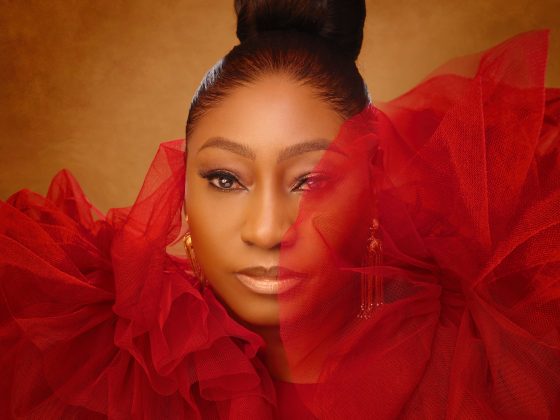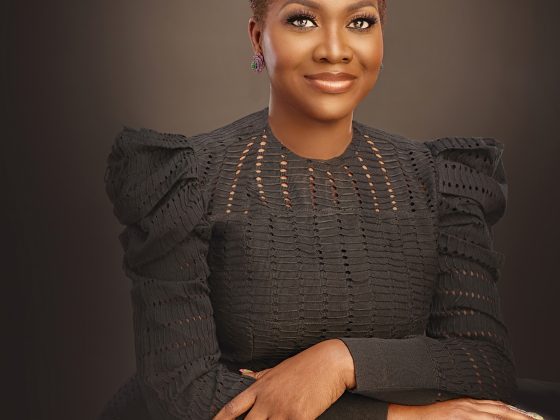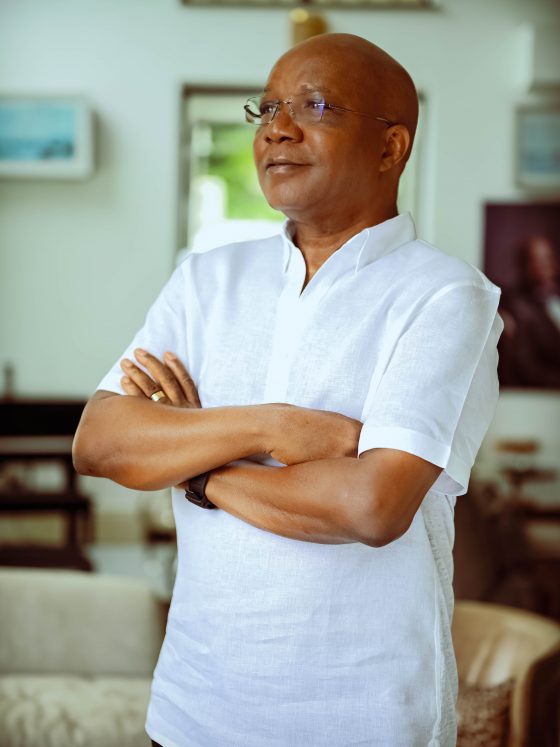In a society where being average is applauded, we should be careful not to pat single fathers on their backs for doing what they are supposed to. Men should love and care for their children, provide emotional and financial support, and give guidance and instruction. Many men do, but society never really speaks much about them. There are many men out there who are primary caregivers and are doing phenomenally well raising children all on their own. As we celebrate Father’s Day this week, we celebrate all fathers, especially those raising kids alone. Speaking to Pastor Ituah Ighodalo on this, he shares the joy of raising his two beautiful children, who he says are his main priority after God, and his journey thus far in his new role as a single father.
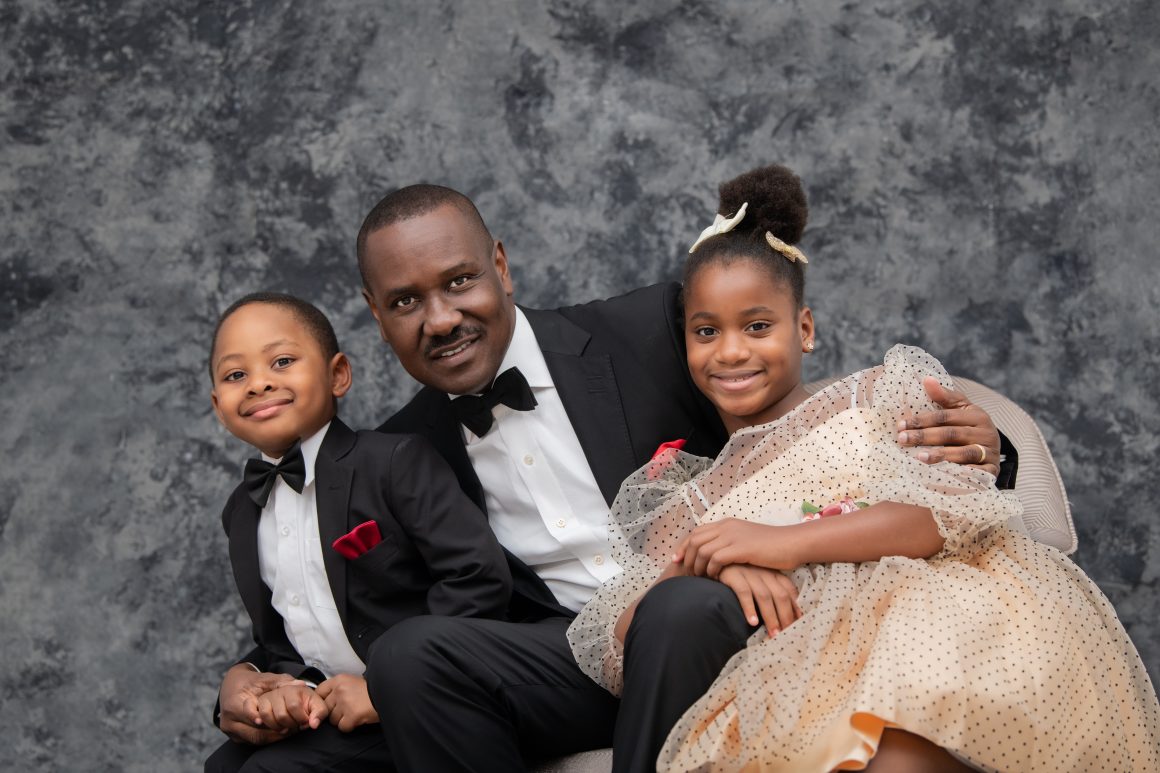
Since your wife died in 2020, how has it been raising the kids independently?
Difficult to describe. The first challenge was getting the information I needed to learn about certain things. The second was pulling myself out to create more time to attend to things I didn’t quite know about or, most times, only glanced through. The third, and perhaps the funniest, was in care selection—the choice of nannies, things like that—and having to be much more involved in the children’s school activities. But it’s just an adjustment of time and knowing that now I have to take on a lot more, be a lot more hands-on, and be a lot more available. And know that children are the main priority of one’s life.
What do you miss most about your wife and raising the kids?
First of all, she was extremely organised, so she got everything sorted. I had nothing to do with school. In those days, she would have gone to the schools, analysed them, evaluated them, and just come and said to me that this is the one that is good. Both schools my daughter went to, she came and said to me, “I think these are the schools,” luckily, I knew the schools, so I didn’t need to evaluate them too much. But she made all the findings, as she was extremely meticulous. She did all the legwork and found all the information, and I just approved once I felt they were in tune with what we both wanted. She also took the children out more—she took them swimming, went with them to their parties, organised their clothes, organised their food, and everything else. I’ve had to do all that now that she is gone.
Tell us how you feel about the reputation society and movies have created about single dads and what exactly the reality is.
I guess a stereotypical impression sells the movie more: having a clumsy single dad who burns the food, forgets the kids, and runs raggedy all over the place. You may make a few mistakes here and there, but within a few months, you’ll get into a rhythm if you’re serious about what you’re doing. And you begin to enjoy it. I remember the very first school PTA meeting that I had to attend. I was initially irritated, but I’ve been to a few since then and am beginning to enjoy those things. We’re not as confused and upside-down as movies portray. We tend to settle into a rhythm, begin to understand things, and then accept that this is our new situation in life. To be honest, society is quite understanding, accommodating, and accepting. I have gotten a lot of support from my in-laws, but also a lot of support from my siblings. I’ve also gotten a lot of help from church members and, of course, a lot of support from even the schools that the children attend.
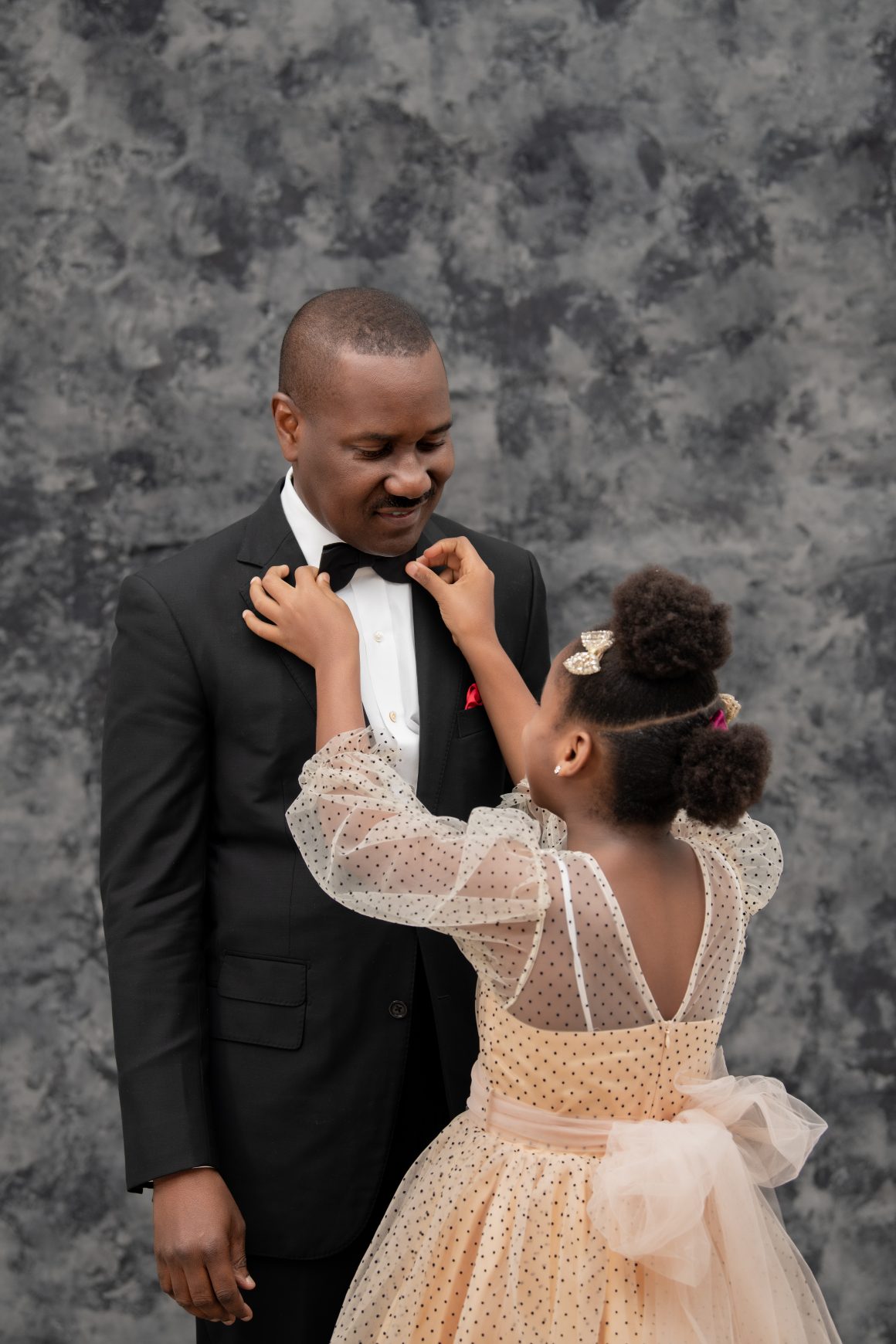
Most times, single mothers are harshly judged and criticised for how they raise their kids, but people are more sympathetic towards single fathers. Do you agree, and why is it so? Or do you get criticised just the same?
Not as of now. I get a lot of suggestions, or I used to get a lot of suggestions, but I am getting them less now. Maybe during the initial few months that my wife passed—the initial nine months or so— I got all sorts of suggestions and things. People were scared for me—that I wouldn’t know my left from my right or what to do. But now we all seem to have settled into a rhythm, and most people have backed off. As to single mothers being criticised, it is just a societal assumption that most children are raised by their mothers, and to some extent, it’s 60 to 70% true because traditional society has women spending more time with their children. Women either stop working or find flexible work because of the children. But teaching the children the manners they need to know is up to both parents. It takes two to raise a child. So participation is very important. So any child that has not been well raised is a result of both parents’ contributions, as far as I’m concerned.
Many people are of the opinion that fathers should raise their kids the way moms do, but the real question here is: can a dad be a mom? Yes or no, and why?
Maybe you need to ask my daughter that question because one day I was going out, and she said I must make sure I come back home early, and I said why? And she said, “Don’t you know you are now mummy, daddy?”
I think both parents have a significant role to play. I know some fathers who have done phenomenal work raising their children. They’ve been a lot more disciplined and committed. But these days, raising children is not just strict discipline; you want to raise children who are your friends; you want to raise children who are confident in themselves. You want to raise children whose talents and gifts you can expose and harness so they can fulfil their purpose in life, as opposed to that straight jacket way of saying, this is right, this is wrong, left, right, forward, backwards. In my opinion, there must be more flexibility, participation, and engagement with the children.
How would you describe your parenting style?
My parenting style is more of a problem-solving technique than a command-and-rule technique. Raising my children has been very pleasurable. I have enjoyed it. We have a lot of fun together; we sleep together, and we have meals together. I take them to school, and we swim.
I look forward to spending time with them every evening before they go to bed.
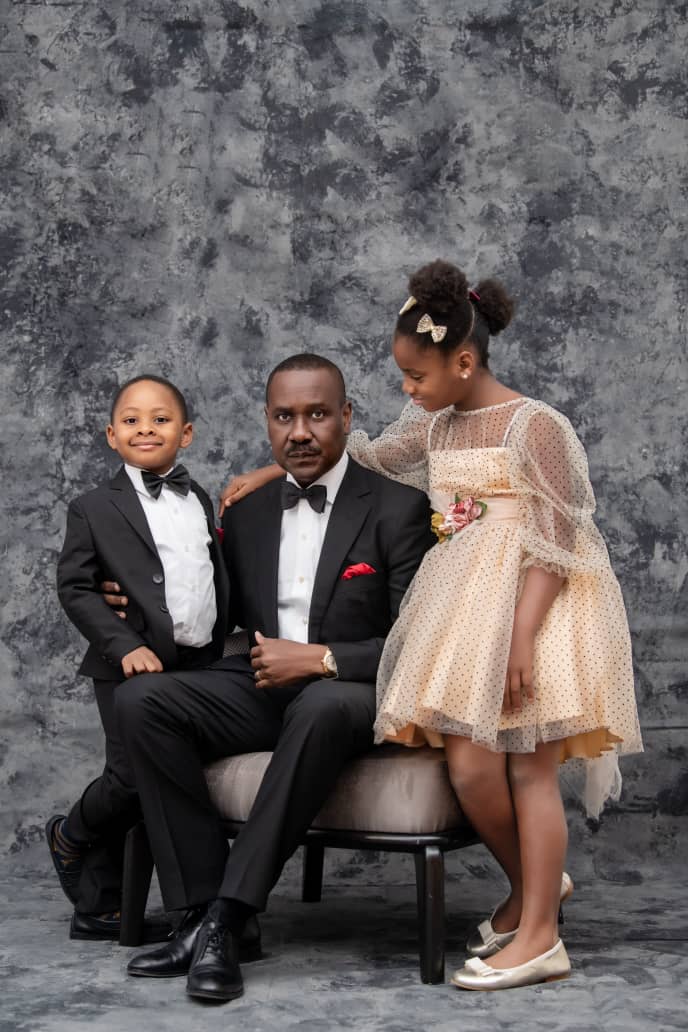
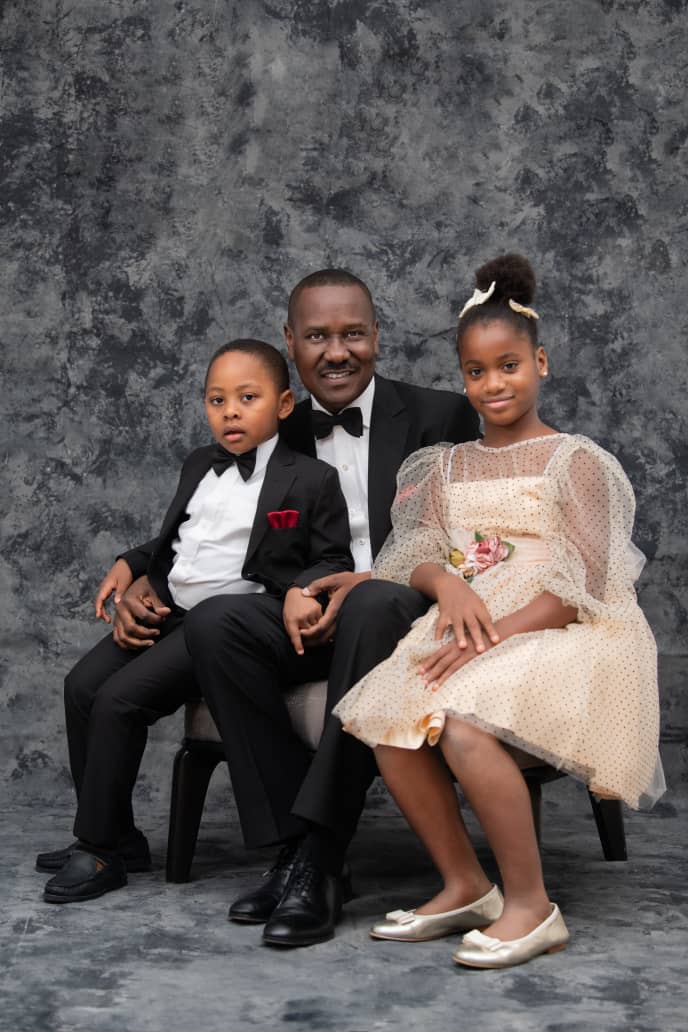
It’s fantastic to hear you are friends with your kid. But as a man of God, from a spiritual perspective, why is it important to raise kids godly in these times and climes?
It’s not just important; it’s critical. It’s critical in a society where values are being quickly eroded. Nobody knows what is right or wrong anymore. Everybody is pushing their agenda and desires and trying to force them on the world in the name of human rights. Making good old values look traditional and old-fashioned. The only values that stand the test of time are those that are godly. And those values evolved from people having a relationship with God and being able to distinguish, through inspiration and critical thinking, what was proper from what was not. Marriage, for example, is fundamentally between two people of opposite sexes, but now society is forcing us to believe you can have a significant other of any sex. It’s not right. It’s not natural. It’s also not biblical. But now they’re saying the Bible is old-fashioned and needs to be rewritten. Some things don’t change. For instance, you cannot eat with your ears, no matter how much you try. The ear is for hearing, not eating. It’s just not equipped to do that. You cannot look with your fingers; the fingers don’t have sight. So you cannot say that looking with your eyes is old-fashioned. And that’s what society is almost saying now.
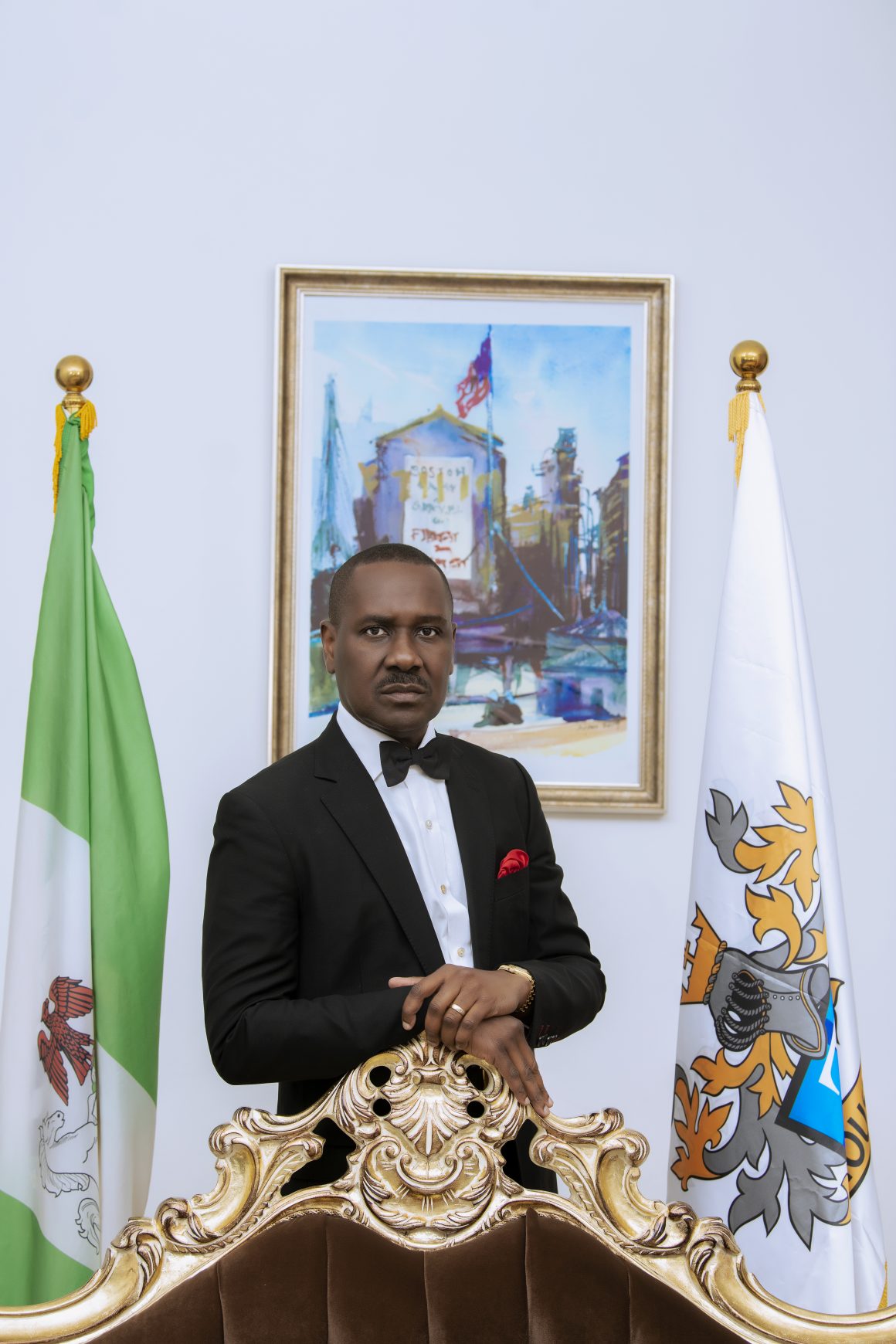
From a spiritual perspective, what is your approach when it comes to discipline?
It’s a mixture of what you would call traditional discipline and modern engagement. I will not shy away from saying that I use a stick once in a while for my children because it’s important. Spare the rod and spoil the child. The fear is that some people might overdo things. So there must be a balance. There must be a way by which you ensure and insist on some discipline for the child. And if they push their boundaries, then they get a bit of the rod. I don’t think it is inappropriate.
So you mentioned you have come into a rhythm with your kids, but some things must be hard as a single dad. Tell us the hardest part about being a single dad, and what are some of your struggles? Also, what is the best part about it?
Physically, it’s not hard for me. I do everything with my children. I’m happy to do it. I give them baths, and I feed them, etc. My girl is a young lady now, so she likes to take a bath herself. The only difficulty is emotional, and that’s when they ask after their mom. They ask why she went and when she is coming back. Questions like that make it emotionally hard, but aside from that, nothing is hard.
What is or was your relationship with your dad, and what fond memories do you have of him?
I had a beautiful relationship with my dad when he was alive. When he was much younger, he had a beard. He used to live in Benin and would drive from Benin to Ibadan, where we lived as young children with my mother, who worked in the civil service. In those days, we used to sleep underneath mosquito nets and would be asleep when he arrived from Benin. First, you would hear the horn of his car at the gate, and when he came in, he would come straight to our room, put his head through the opening of our mosquito net, and rub his beard all over our faces. You would smell his aroma when he did this, which was really enjoyable. He was a brave man; he was calm, a good-looking man, a very affectionate man, and he loved his children. He used to take us hunting, and out on drives, and he would take us to the farm. Both my parents had farms. He taught me how to ride a bicycle, and he taught me how to drive at the age of 14 or 15.
Is that the same approach you have with your children, especially as a single dad?
I really hope so. Time will tell whether I’m successful or not, but I allow them to have their say and consult them. We discuss, and we have fun. When they’re going out of line, I stop them.
What are your hopes for your children in the future?
I hope they grow up as children with strong Christian values. I hope they are confident in themselves while being respectful and disciplined and, most importantly, that they fulfil their purpose. I hope to guide them towards their destinies and not force them to be what they would rather not be.
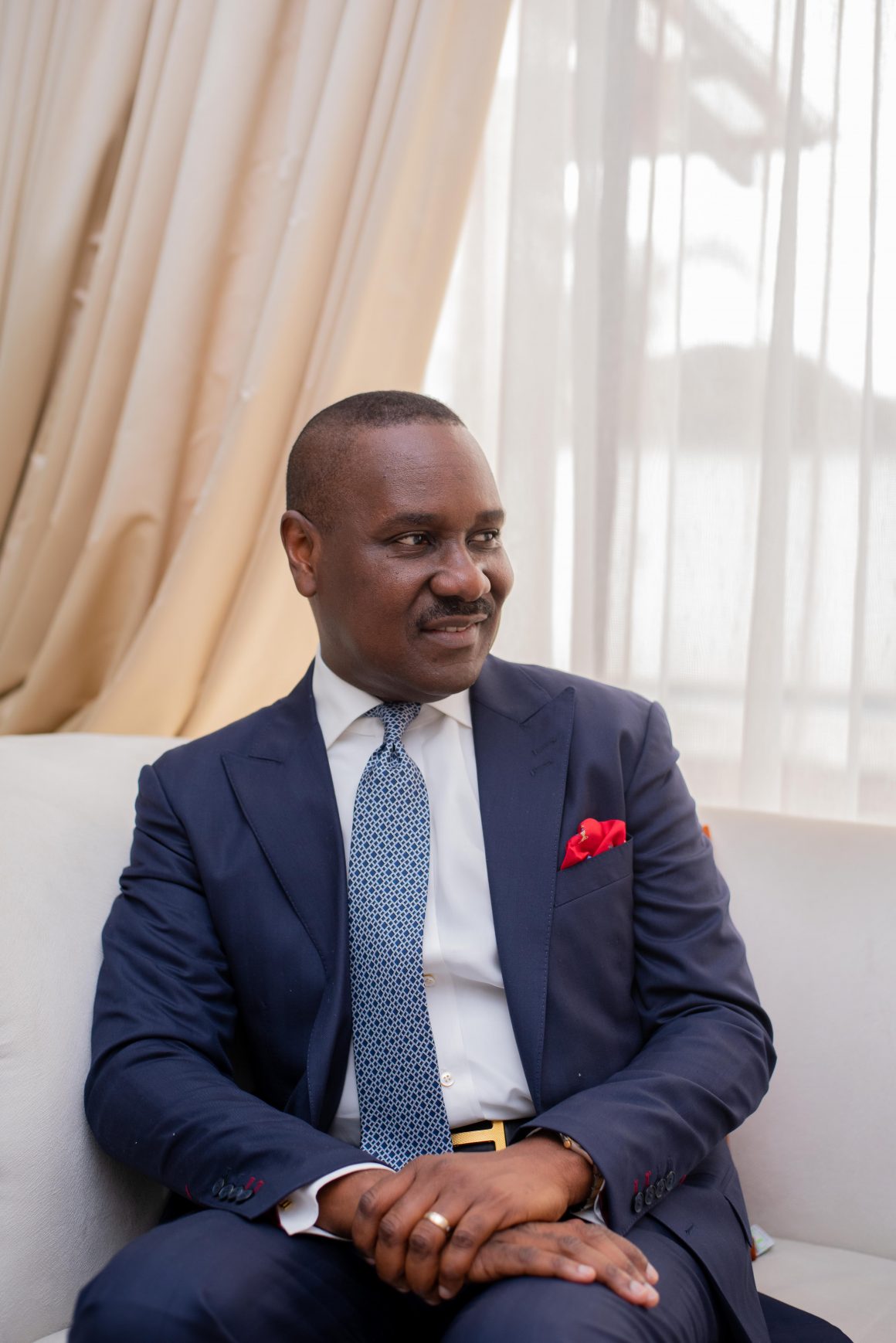
What advice do you have to give other single dads?
There’s nothing to be too worried about. I don’t know what circumstances led to their singleness. Some are single because they’re separated; some are single, like in my case, because they lost their wives; some are single because they never got married and are responsible for raising their children. My advice is that they should be good parents and good people. You can’t give what you don’t have. You should be born again; you should be a Christian. You should distinguish right from wrong values. Go back to school if you are not that inclined so that you can transfer the same values to your children. The second thing is to create time for your children, look forward to it, and make it fun. Don’t think of it as a regress or that it’s not masculine to bring up children. You just have to keep going, keep doing it, and make the most of it. The third, of course, is to seek help when you need it. Consult people and ask for advice. Don’t think you know it all because nobody knows it all. I’ve sought help many times, and it helps.

